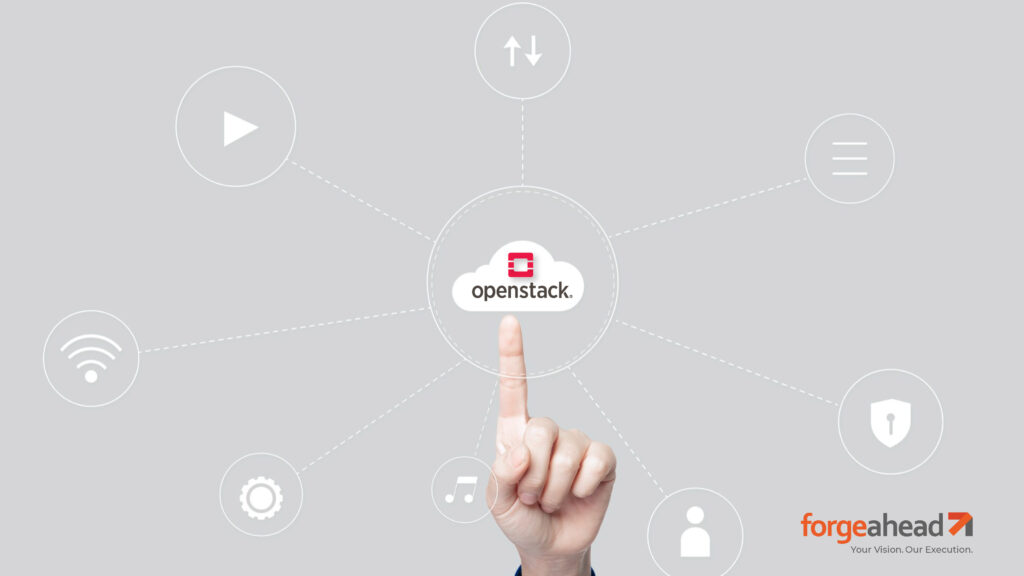Last updated on May 31st, 2024
Artificial Intelligence (AI) has set the technology world abuzz with excitement as organizations recognize its potential to revolutionize software product development and testing. The rapid advancements in AI and machine learning (ML) technologies have opened up new possibilities. In fact, Gartner outlines that 4 out of 10 software engineering firms are already leveraging ML models in some capacity.
The increasing possibilities of AI and ML in software development and testing prompts us to ponder whether this trend will continue to gain momentum or remain an intriguing curiosity.
The Role of AI and ML in Software Product Development
AI and ML are transforming the landscape of software product development by enabling systems to learn from data, adapt to patterns, and make informed decisions. AI encompasses a broad range of technologies that simulate human intelligence, while ML focuses on algorithms that allow computers to learn and improve from experience.
In the context of software product development, AI can play a pivotal role throughout the entire lifecycle. During ideation, AI-powered tools can analyze market trends, customer feedback, and competitor data to generate insights that drive innovative ideas. In the design phase, AI can automate repetitive tasks, provide design suggestions, and optimize user interfaces based on user behavior patterns. In development and deployment, AI can assist in code generation, debugging, and continuous integration, which leads to faster and more efficient processes.
Benefits of Leveraging AI and ML in Software Product Development
Incorporating AI and ML into software product development offers numerous advantages:
- Increased Efficiency: Automation of repetitive tasks frees up developers’ time for more creative and strategic endeavors.
- Improved Accuracy: AI algorithms can analyze extensive datasets and provide precise predictions, enhancing the accuracy of software functionalities.
- Enhanced User Experience: Personalization and customization facilitated by AI-driven systems lead to a more satisfying user experience, catering to individual needs and preferences.
AI in Software Testing
Traditional software testing processes often face limitations due to time constraints and the inability to test all possible scenarios comprehensively. However, with AI-driven testing approaches, organizations can overcome these challenges and achieve better testing outcomes.
Automated test generation leverages AI algorithms to generate test cases automatically. By analyzing code and identifying potential inputs, AI can create a diverse set of test scenarios that cover a wide range of conditions, improving test coverage and effectiveness.
Anomaly detection is another AI-driven technique that helps identify abnormal behavior or unexpected results during testing. By analyzing data patterns and establishing baselines, AI algorithms can quickly detect deviations and flag potential defects or vulnerabilities.
Intelligent test prioritization utilizes AI to determine the most critical tests based on the impact and risk factors. By intelligently prioritizing tests, organizations can optimize testing efforts and allocate resources efficiently, enabling faster software releases without compromising quality.
Benefits of AI in Software Testing
In today’s rapidly evolving technological landscape, Artificial Intelligence (AI) is revolutionizing the field of software testing. Leveraging AI in software testing brings numerous advantages, improving efficiency, accuracy, and overall quality assurance processes.
Here are some key benefits:
- Automated Test Case Generation: AI algorithms can automatically generate test cases based on requirements and historical data, reducing the manual effort required for test case creation.
- Enhanced Test Coverage: AI-powered testing tools can analyze vast amounts of code and identify areas with low test coverage, ensuring comprehensive testing of the software.
- Predictive Analytics: AI algorithms can analyze patterns in test results and predict potential defects or areas of weakness, enabling proactive defect prevention.
- Faster Defect Detection: AI-based testing tools can quickly detect and diagnose defects in the software, accelerating the debugging process and reducing time-to-market.
- Optimized Test Prioritization: AI algorithms can prioritize tests based on factors such as risk, impact, and frequency of use, allowing teams to focus on critical areas first.
- Adaptive Testing: AI-driven testing tools can adapt and learn from previous testing experiences, continuously improving testing strategies and identifying evolving risks.
Leveraging AI for Smarter Decision-Making
The power of AI lies in its ability to analyze vast amounts of data and provide valuable insights for decision-making during software product development. AI and ML algorithms can process data from various sources, such as user feedback, sensor data, and historical project data, to extract patterns and correlations.
In predicting software quality, AI algorithms can analyze historical defect data and project-specific parameters to identify potential areas of concern. This allows organizations to proactively address issues and allocate resources effectively.
Estimating project timelines can also be enhanced through AI. By considering historical data, project scope, and resource availability, AI algorithms can generate accurate project timelines, enabling better planning and resource allocation.
Furthermore, AI can assist in identifying risks and opportunities by analyzing market trends, competitor strategies, and user preferences. This data-driven approach enables organizations to make informed decisions and align their product development strategies with market demands.
Overcoming Challenges and Ensuring Human Expertise
While the integration of AI in software product development and testing brings numerous benefits, it also raises concerns about the role of human expertise. While AI can automate many tasks, it cannot completely replace the knowledge and experience of expert product developers.
Human expertise is crucial in guiding and validating AI-driven processes. Product developers possess domain knowledge, critical thinking abilities, and an understanding of customer needs. They can ensure that AI tools and strategies are selected and implemented correctly, considering the specific requirements of each organization.
Expert product developers play a vital role in striking the right balance between automation and human involvement. They can determine which tasks require human judgment, creativity, and intuition and which can be automated. By leveraging AI effectively and embracing human expertise, organizations can maximize the benefits of AI in software product development.
Ethical Considerations – Building Trust
Trust and transparency are paramount when incorporating AI into software product development. The ethical implications of AI, including bias, privacy, and security, must be carefully considered and addressed.
Bias in AI algorithms can perpetuate unfair practices or discriminate against certain user groups. Expert product developers can ensure that AI systems are trained on diverse and unbiased datasets, mitigating the risk of biased outcomes.
Besides, privacy and security concerns arise when AI systems collect and analyze sensitive user data. Therefore, product developers must prioritize data protection and ensure compliance with privacy regulations to build trust with users.
All in all, responsible AI practices should be ingrained in software product development and testing processes. Expert product developers can define ethical guidelines and establish governance frameworks to ensure the responsible and ethical implementation of AI.
Product Developers Will Continue to Play an Integral Role
The potential impact of AI on software product development and testing is undeniable. AI and ML technologies offer immense opportunities to enhance efficiency, accuracy, and user experience throughout the product development lifecycle. However, the role of expert product developers cannot be understated in this transformative journey.
Also, as we embrace AI as a powerful tool, it is essential to consider ethical implications, maintain transparency, and prioritize human oversight. To that end, expert product developers will continue to play a crucial role in guiding organizations toward effective and ethical AI implementation and fostering innovation.
Get in touch with us to learn more about how to leverage AI for effective product development and testing.
FAQ
What is AI’s role in software product development and testing?
AI plays a crucial role in software product development and testing by automating repetitive tasks, improving efficiency, enhancing accuracy, and enabling predictive analytics for better decision-making.
How does AI contribute to the software development lifecycle (SDLC)?
AI contributes to the SDLC by streamlining processes such as requirements gathering, code generation, testing automation, bug detection, and maintenance prediction.
Can AI replace human testers in software testing?
While AI can automate many testing tasks, human testers are still essential for tasks requiring creativity, intuition, and domain expertise. AI complements human testers by improving efficiency and accuracy.
How does AI improve software quality assurance (QA)?
AI improves software QA by identifying defects early in the development process, predicting potential issues, optimizing test coverage, and providing insights for continuous improvement.
What are the challenges of implementing AI in software development and testing?
Challenges include data quality issues, algorithm bias, integration complexity, security concerns, ethical considerations, and the need for skilled AI practitioners.
What role does AI play in DevOps practices?
AI enhances DevOps practices by automating deployment pipelines, monitoring system performance, detecting anomalies, optimizing resource allocation, and facilitating continuous integration and delivery (CI/CD).
What are some AI-driven tools used in software product development and testing?
Tools include intelligent test automation platforms, AI-powered defect tracking systems, code review assistants, predictive analytics tools, and AI-based project management software.



